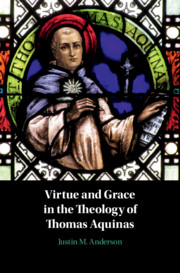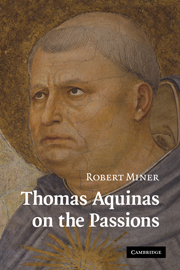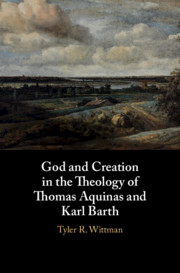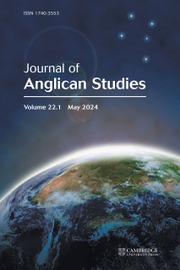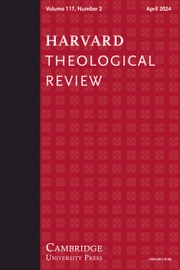Virtue and Grace in the Theology of Thomas Aquinas
$103.00 USD
- Author: Justin M. Anderson, Seton Hall University, New Jersey
- Date Published: July 2020
- availability: This ISBN is for an eBook version which is distributed on our behalf by a third party.
- format: Adobe eBook Reader
- isbn: 9781108620703
Find out more about Cambridge eBooks
$
103.00 USD
Adobe eBook Reader
Other available formats:
Hardback
Looking for an inspection copy?
This title is not currently available on inspection
-
Throughout his writings, Thomas Aquinas exhibited a remarkable stability of thought. However, in some areas such as his theology of grace, his thought underwent titanic developments. In this book, Justin M. Anderson traces both those developments in grace and their causes. After introducing the various meanings of virtue Aquinas utilized, including 'virtue in its fullest sense' and various forms of 'qualified virtue', he explores the historical context that conditioned that account. Through a close analysis of his writings, Anderson unearths Aquinas's own discoveries and analyses that would propel his understanding of human experience, divine action, and supernatural grace in new directions. In the end, we discover an account of virtue that is inextricably linked to his developed understanding of sin, grace and divine action in human life. As such, Anderson challenges the received understanding of Aquinas's account of virtue, as well as his relationship to contemporary virtue ethics.
Read more- A text-based, historically dynamic account of Aquinas's developing moral thought
- Provides an overview of virtue and the inherent connections it has with the irreducibly theological content of Aquinas's theology
- Presents a unique perspective on the relationship between the human and divine action in the moral life on both the supernatural and natural planes
Reviews & endorsements
'… this book is remarkable for its historical depth, and provocative in some of its conclusions.' David Elliot, The Thomist
See more reviews'It is rare to have the pleasure of reviewing a book as well argued and well researched as [this] … This monograph significantly impacts how we understand Aquinas' theory of virtue.' K. Lauriston Smith, Reading Religion
Customer reviews
Not yet reviewed
Be the first to review
Review was not posted due to profanity
×Product details
- Date Published: July 2020
- format: Adobe eBook Reader
- isbn: 9781108620703
- contains: 1 table
- availability: This ISBN is for an eBook version which is distributed on our behalf by a third party.
Table of Contents
Introduction
Part I. Virtue and the Developments in Grace:
1. A brief overview of the Thomistic conception of virtue
2. Analogous language and meanings
3. Historical context of the foundations of virtue
Part II. The Conditions of Virtue Simpliciter:
4. The conditions for the beginning of virtue simpliciter
5. The conditions for perseverance in virtue simpliciter
6. The conditions for the end of virtue simpliciter
Part III. The Conditions of Virtue Secundum Quid:
7. The conditions for the beginning of virtue secundum quid
8. The conditions for perseverance in virtue secundum quid
9. The end of virtue secundum quid
Part IV. Confirmations and Conclusions:
10. The suitability of Thomas Aquinas's definition of virtue
Selected works cited
Index.
Sorry, this resource is locked
Please register or sign in to request access. If you are having problems accessing these resources please email [email protected]
Register Sign in» Proceed
You are now leaving the Cambridge University Press website. Your eBook purchase and download will be completed by our partner www.ebooks.com. Please see the permission section of the www.ebooks.com catalogue page for details of the print & copy limits on our eBooks.
Continue ×Are you sure you want to delete your account?
This cannot be undone.
Thank you for your feedback which will help us improve our service.
If you requested a response, we will make sure to get back to you shortly.
×
